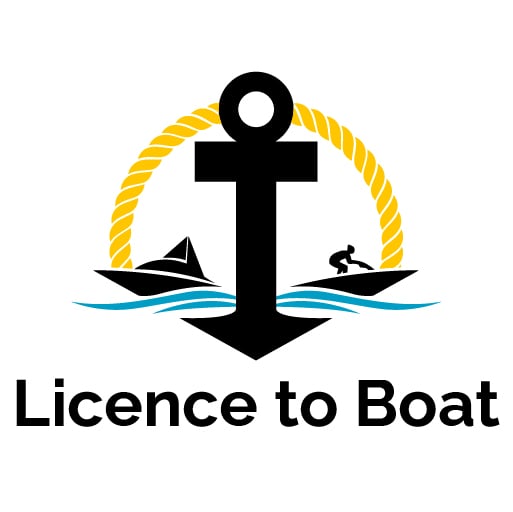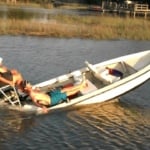So you’ve decided to take to the water and navigate your way through the vast oceans or serene lakes. But before you embark on your boating adventures, it’s crucial to know what licenses or certifications you need to operate a boat. Whether you’re a seasoned sailor or a newbie eager to set sail, knowing the legal requirements is essential to ensure your safety and comply with the law. In this article, we’ll explore the licenses and certifications you may need, depending on the type of boat you plan to operate and the waters you’ll be navigating.
Overview of Boat Licensing and Certification
Operating a boat requires certain licenses and certifications to ensure the safety of both the boat operator and others on the water. These licenses and certifications vary depending on the type of boat and the activities you plan to engage in while boating. From boating education courses to specialized certifications for sailing, fishing, and watersports, there are numerous options to choose from. It’s important to understand the different types of licenses and certifications available before you set sail, to ensure you are in compliance with the regulations and to enhance your skills and knowledge as a boat operator.
Different Types of Boat Licenses and Certifications
-
Boating Education Courses
Boating education courses are a common requirement for operating a boat in many jurisdictions. These courses provide instruction on boat safety, navigation rules, and other essential skills and knowledge needed to operate a boat responsibly. They are typically designed to cover the basics of boating and are suitable for both novice and experienced boaters.
1.1 ### Local Boating Safety Courses
Local boating safety courses are offered by various organizations and agencies at the local level. These courses may be mandatory in some areas and cover topics such as boat handling, navigation, rules of the waterways, and emergency procedures. They are a valuable resource for learning the specific rules and regulations of your local boating area.
1.2 ### NASBLA Approved Courses
NASBLA (National Association of State Boating Law Administrators) approved courses are widely recognized and accepted throughout the United States. These courses meet the national standards for boating education and provide comprehensive instruction on all aspects of boating safety and operation. Successful completion of a NASBLA approved course often results in a boater education card or certificate, which may be required by some states.
-
Motorized Boat Licenses
If you plan to operate a motorized boat, you may need to obtain a specific operator’s license or certification. These licenses are typically required for boats with engines above a certain horsepower threshold. The requirements for motorized boat licenses may vary by state or country.
2.1 ### Operator’s License
An operator’s license is the most common type of license required for operating a motorized boat. It usually involves a written exam and, in some cases, a practical demonstration of boating skills. Operator’s licenses may have certain limitations, such as horsepower restrictions or distance limitations from shore.
2.2 ### Commercial Operator’s License
A commercial operator’s license is necessary if you plan to use your boat for commercial purposes, such as offering boat tours or charters. This license may require additional training and certification beyond the standard operator’s license. Commercial operator’s licenses often involve a more rigorous and comprehensive examination process to ensure the safety of passengers in commercial settings.
-
Sailing Certifications
For those interested in sailing, there are certifications available to demonstrate proficiency in sailing skills and knowledge.
3.1 ### American Sailing Association (ASA) Certifications
The American Sailing Association offers a series of certifications for sailors of all levels, from beginner to advanced. These certifications cover a wide range of sailing skills, including boat handling, navigation, anchoring, and safety procedures. ASA certifications are recognized internationally and are widely respected within the sailing community.
3.2 ### Royal Yachting Association (RYA) Certifications
The Royal Yachting Association, based in the United Kingdom, offers a comprehensive range of sailing certifications. These certifications are recognized worldwide and cover various aspects of sailing, from basic skills to advanced racing techniques. RYA certifications are highly regarded and may be required or preferred for certain sailing opportunities.
-
Watersports Certifications
If you plan to engage in specific watersports activities such as water skiing, wakeboarding, or paddleboarding, there are certifications available to ensure your safety and proficiency in these activities.
4.1 ### Water Skiing and Wakeboarding
The Water Sports Industry Association (WSIA) offers certifications for water skiing and wakeboarding instructors. These certifications validate the instructor’s ability to teach proper techniques, safety protocols, and equipment handling to students. While these certifications may not be required for recreational skiers or wakeboarders, they can enhance your skills and ensure a safer experience on the water.
4.2 ### Paddleboarding
The World Paddle Association (WPA) offers certifications for paddleboarding instructors and enthusiasts. These certifications cover various aspects of paddleboarding, including safety, technique, and equipment knowledge. While not always required, a paddleboarding certification can improve your skills and knowledge in this popular watersport.
-
Fishing Licenses
If you plan to go fishing from your boat, you may need to obtain a fishing license. Fishing licenses are typically required to ensure compliance with fishing regulations and conservation efforts.
5.1 ### Freshwater Fishing Licenses
Freshwater fishing licenses are required for fishing in rivers, lakes, and other freshwater bodies. These licenses may be obtained from state fish and wildlife agencies or other authorized vendors. The fees and requirements for freshwater fishing licenses vary by state.
5.2 ### Saltwater Fishing Licenses
Saltwater fishing licenses are required for fishing in the ocean or other saltwater bodies. These licenses may be obtained from state fish and wildlife agencies or other authorized vendors. The fees and requirements for saltwater fishing licenses also vary by state.
-
Yachtmaster Certifications
Yachtmaster certifications are internationally recognized qualifications for recreational and professional boaters. These certifications are offered by various organizations and demonstrate a high level of competence in yacht handling and navigation.
6.1 ### Yachtmaster Coastal
The Yachtmaster Coastal certification is designed for boaters who navigate coastal waters. This certification focuses on navigation, passage planning, boat handling, and safety procedures in coastal environments.
6.2 ### Yachtmaster Offshore
The Yachtmaster Offshore certification is for boaters who navigate offshore or long-distance passages. This certification requires advanced knowledge and skills in navigation, meteorology, boat handling, safety procedures, and emergency management.
-
Inland Waterway Licenses
Inland waterway licenses may be required if you plan to navigate certain rivers, canals, or other inland waterways. These licenses ensure compliance with regulations specific to inland waterways and may require additional training or certification.
7.1 ### US Inland Waterway Operators’ License
In the United States, an Inland Waterway Operators’ License may be required for the operation of commercial vessels on certain inland waterways. This license typically involves demonstrating knowledge of specific waterways and navigation rules, as well as meeting other requirements set by the U.S. Coast Guard.
7.2 ### European Certificate for Pleasure Craft (ECC)
The European Certificate for Pleasure Craft (ECC) is required for the navigation of certain European inland waterways. This certificate demonstrates knowledge of the specific waterway regulations and may be required for boaters traveling through European countries.
-
Charter and Tour Operator Licenses
If you plan to operate a boat for charter or tour purposes, you may need specific licenses or certifications to ensure compliance with regulations and provide a safe and enjoyable experience for passengers.
8.1 ### US Coast Guard Captain’s License
The US Coast Guard Captain’s License, also known as a Merchant Mariner Credential, is required for individuals operating certain types of vessels carrying passengers for hire. This license involves meeting specific requirements in terms of sea time, training, and testing. The different types of US Coast Guard Captain’s Licenses include Six-Pack License, Master License, and Operator of Uninspected Passenger Vessel (OUPV) License.
8.2 ### Tour Operator Licenses
Some jurisdictions may require additional licensing or certification for individuals operating boats for tour purposes, even if not carrying passengers for hire. These licenses may involve additional training on safety procedures, customer service, and local regulations.
-
Scuba Diving Certifications
If you plan to engage in scuba diving activities from your boat, it is important to obtain the necessary scuba diving certifications. These certifications ensure that you have the knowledge and skills to dive safely and responsibly.
-
Navigation and Seamanship Certifications
There are various navigation and seamanship certifications available for boaters who want to enhance their skills in these areas. These certifications typically cover topics such as navigational charts, compass use, electronic navigation systems, weather forecasting, and emergency procedures.
Conclusion
Operating a boat requires specific licenses and certifications based on the type of boat and the activities you plan to engage in. From boating education courses to specialized certifications for sailing, fishing, watersports, and yacht handling, there are numerous options available to enhance your skills and knowledge as a boat operator. It is important to research and comply with the regulations specific to your location and the type of boat you plan to operate to ensure the safety of yourself and others on the water. Obtaining the necessary licenses and certifications will not only make you a more competent and responsible boater but also contribute to a more enjoyable and fulfilling boating experience.





